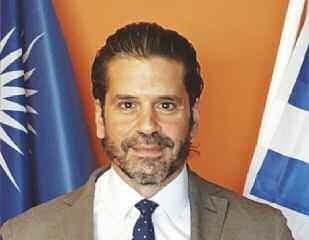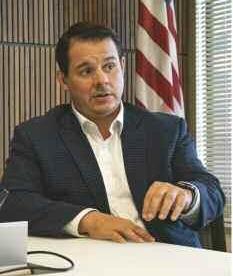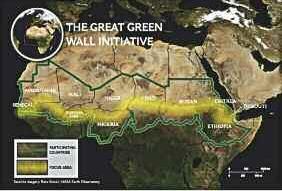
8 minute read
Flag
Theo Xenakoudis celebrates 20 Years with IRI
Change has been a driver of innovation in the industry. Looking ahead, Theo expects the pace of change to accelerate. “COVID is a game changer,” he said. “But difficult times foster innovative thinking. We’re making significant leaps in technology and cutting-edge tools because of the COVID-19 challenges. In December 2019, the thought of remote inspections was not even on the radar. Yet one short year later, we have completed more than 900 remote inspections.” “Technology serves to support Registry activities and technical services,” Theo continued. “We are very happy to be able to support clients in new ways to meet their needs and support their operations. The collaborative relationships between shipyards, owners, operators, and Class and flag States are facilitating this new thinking in the face of COVID-19. I think we are at the dawn of a new age of advanced technology. We will probably see things in the upcoming years in the areas of sustainability and fuel that we can’t even imagine today.” Theo finds it inevitable, due to the upcoming regula-
Advertisement
When Theo Xenakoudis joined IRI in 2001, the Piraeus tions, to see innovation and technological changes in all office was only 4 strong, and was led by Captain John aspects of the industry, from advanced ship designs and Giannopoulos, together with Theo’s father, Captain Costas retrofit solutions that reduce the consumption of fuel to alterXenakoudis. The office focused on processing seafarers’ native fuels and new solutions and resources. documentation and licensing, as well as conducting ships’ “COVID-19 has really created an opportunity to foster innoinspections in Greece. Today of course, the Piraeus office is a vative thinking. I can’t predict how widespread this jump in regional hub of the Republic of the Marshall Islands (RMI) technology and innovation will impact our industry, but there Registry activity. As IRI’s second largest office, Piraeus han- is a lot of opportunity right now for us to jump ahead.” dles all aspects of corporate and maritime registry related One thing that hasn’t changed in his 20 years with IRI is the services. consistent team-focused culture of customer service, qual-
“The role of the flag State has changed since I started,” ity, integrity and safety. Theo said. “Twenty years ago, there was not so frequent and “Our people are with us long-term because we respect their daily communication with Classification Societies (Class) was abilities, personalities and knowledge, and give them autonnot as common as it is today. In today’s business environ- omy,” Theo said. “They have the opportunity to exercise their ment, we are really integrated from top to bottom, letting us power to support our clients, resulting in the highest level of provide high-quality support and service to our fleet.” client service, and a highly satisfied and empowered Registry
Theo became Managing Director of the team.” Piraeus office in 2007, and he expanded IRI’s culture of teamwork and IRI’s reach not only deeper into the Greek collaboration is part of Theo’s market, but also to shipowners in Italy, success. Cyprus, Turkey, Monaco, and the Black “Theo is always focused on Sea region. In late 2000s Theo had grown supporting others and on getinto a worldwide role and was promoted ting the job done right,” said Bill to Director, Worldwide Business Opera- Gallagher, President of IRI. tions in 2015. At that time, the RMI Reg- “He’s a visionary, not only in his istry had grown into one of the largest forward-thinking outlook, but registries in the world and had become also in the way he collaborates the foreign flag of choice for Greek and includes others. He brings shipowners. Bill Gallagher them along with him.”
Liberian Registry expands in Korea

Alfonso Castillero
The Liberian Registry announced the expansion of its presence in South Korea, with the opening of its Busan branch office. After a successful several years of winning over tonnage from Korean owners, the Liberian Registry has met the demand of its ever-increasing Korean fleet with this additional technical and operational office in the heart of Korea’s maritime city.
Chief Operating Officer of the Liberian Ship and International Corporate Registry (LISCR), Alfonso Castillero states: “The opening of our Busan office achieves a strategic objective of our growth in the very important Korean market. The majority of Korean owners will have their management companies located in Busan so this will be a dual office in the sense that it will support our growing client base in Korea on technical and operational matters, and it will also be a key in our business development efforts in Korea. With the tonnage coming to LISCR from Korean owners this year and next, this will be a very busy office!”
Managing Director of LISCR in Korea, J. S. Kim, who will continue to oversee the Registry’s overall efforts in Korea from his headquarters in Seoul continues: “This is a very big and important step for the Liberian Registry in Korea. We have seen such an increase in Korean shipowners deciding to adopt the Liberian flag, and this will be a direct benefit to them to have this technical, operational, and safety-focused office locally.”
Heading up the Busan office is J. D. Shin, who joins from the Korean Register of Shipping. He was with KR for the past thirty years after starting his career at sea as a marine engineer. During his distinguished career at KR, Mr. Shin included stops in Ulsan, New York, Athens, and in KR’s HQ. He has held the posts of General Manager of Convention & Legislative Service, Ship Survey Team, Overseas Business Team, and as Principal Surveyor.
Also joining the Busan team is Florie Kim, who joins LISCR following a career in which she has spent time with Class NK, as well as TP Shipmanagement.
LISCR Busan, which is located within the same building as the Korean Shipowners’ Association, joins Oslo, Imabari, Houston, and Manila as the newest additions to the global network of full-service offices for the Liberian Registry.
The Liberian Registry has a long-established track record of combining the highest standards of safety for vessels and crews with the highest levels of responsive and innovative service to owners. Moreover, it has a well-deserved reputation for supporting international legislation designed to maintain and improve the safety and effectiveness of the shipping industry and protection of the marine environment.

Mediterranean powers and the Sahel’s environment and security
by Dimitri Constas
I write this short comment at a time when the United States’ return to the world scene opens a tiny window of hope to a world overcome by fear and insecurity not only for the future but for everyday life. As regards Africa, the prevalent view sees it as a continent of illegal migration, terrorist movements and environmental degradation. In Greece, in particular, African threat takes the form as strong heat waves carrying “sandy dust from the Sahara” or Turkish deals with Libya and military bases in Somalia. Incidentally, since 2009 Ankara has increased its Embassies in Africa from 12 to 42.
Also, Turkish regional activity and alliances draw Greek attention to one of the most important state/environmental disputes of our time, the ongoing dispute between Egypt (and Sudan) on one side and Ethiopia on the other for the flow of the Nile waters. Turkey has invested in Ethiopia $US 2.5 billion out of a total of $6 billion in the whole Sub Saharan Africa. 85% of the water flowing into the Blue Nile originates from the Ethiopian highlands. Construction of the dam, officially started in 2011, escalated the country’s dispute with Egypt, a country totally dependant on the river. After periods of great tension Egypt, Sudan and Ethiopia entered into negotiations that eventually focused on the rate of filling of the colossal -145 meters high- dam, especially during dry periods. The last round of talks concluded on January 3, 2021 without concrete results.
Nevertheless, these differences represent a tiny fraction of the vast mosaic of problems in Africa, a continent plagued by advancing soil degradation, loss of 65% of cultivated land, 30% of pastures and 20% of its forests: Losses equivalent to 3% of the continent’s GDP. Already 25% of Africa is desert. The Sahel, name given to the part of Sub Saharan Africa extending from Senegal in the Atlantic and nine other states to Ethiopia and Djibouti in the Red Sea, demonstrates the severity of the effects of Climate Change.
The latter equates with famine brought about by persistently hot temperatures, shorter rain seasons and more frequent rainstorms that destroy cultivations and erode the soil. Last year 22% of Sahel’s population suffered from famine, 50 million more compared to 2010. Religious fanaticism, ethnic and political conflict and forced migration are the inevitable sideeffects. These side-effects have drawn the attention of the European Union and certainly that of France the dominant colonial power of West Africa.
In the context of international and European military action against secessionist movements in Mali by the UN (MANESMA) and the EU (EUCAP Sahel and Mali) the French Minister of Defence, Florence Parly, made a major step towards bringing Greece closer to Sub-Saharan security and environmental issues. During her visit to Athens on January 25, 2021, in the context of the announcement of the deal for the purchase by Greece of the Rafale fighter jets, she openly asked the Greek Government for the participation of Greek armed forces in the operations in the area.
The Great Green Wall of Africa (Great Green Wall-GGW) is an African initiative by 11 Sahel states that began in 2007. Its objective is to create a “Green Wall” of 8,000 kilometres that would set a barrier to desertification, through the retention and administration of water resources and the restoration, whenever possible, of cultivable lands, pastures, and forests. When completed it will be the largest living ecosystem of the planet three times larger than the Great Coral Reef.
On January 11th, President Macron announced that France will finance with an amount exceeding $14 billion its Initiative to Accelerate GGW. The ambition of the latter is to attain most of its objectives by 2030, the year when, according to Sustainable Development Goals, the Ecosystems Restoration Decade comes to its conclusion. Perhaps this is an overly optimistic target considering that during the first decade it had attained only 15% of its set objectives. Nevertheless, this is a continuing effort still attracting resources and moral support from around the world and projecting a much-needed positive outlook for the future of the planet.











